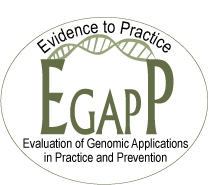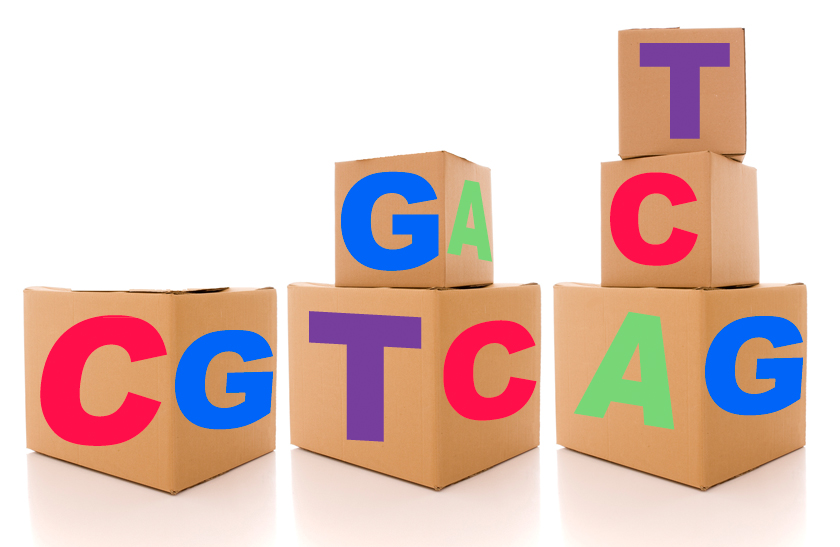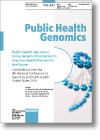Category: genetics
Evidence Matters in Genomic Medicine- Round 2: Integrating Cancer Genomic Tests

In a previous blog, CDC’s Office of Public Health Genomics announced a list of health-related genomic tests and applications, stratified into three tiers according to the availability of scientific evidence and evidence-based recommendations as a result of systematic reviews. The list is intended to promote information exchange and dialogue among researchers, providers, policy makers, and Read More >
Posted on by 1 CommentThink After You Spit: Personal Genomic Tests May Offer a Teachable Moment

Personal genomic tests are now widely available and sold directly to consumers, but population-based data are limited on awareness, use and impact of these tests. In collaboration with 4 state public health genomics programs, we have recently reported on consumer awareness and use of personal genomic tests using the 2009 Behavioral Risk Factor Surveillance System. Read More >
Posted on by 1 CommentPeeling the Pyramid, Scaling the Onion—How to Implement Genomic Medicine

In spite of the promise of genomics and related technologies for a new era of precision healthcare and disease prevention, only a handful of genomic tests and applications have been recommended for use in clinical practice. Nevertheless, implementation of even the few recommended genomic tests is lagging. For example, implementing the 2005 USPSTF recommendation on genetic Read More >
Posted on byWorkings of an Evidence-Based Genomic Panel

Synopsis of the 24th Meeting of the Evaluation of Genomic Applications in Practice and Prevention (EGAPP) Working Group The EGAPP working group (EWG) has held 24 meetings in the 7 years since they were first convened; the latest EGAPP meeting was May 7-8, 2012 on the campus of CDC in Atlanta. Since it is Read More >
Posted on bySharing the Burden of Obesity

On May 7-9, the CDC Division of Nutrition, Physical Activity, and Obesity, hosted a conference on Weight of the Nation™ in Washington, D.C. The conference served to highlight progress in the prevention and control of obesity through policy and environmental strategies. The Weight of the Nation is also the title of an HBO Documentary Read More >
Posted on by 1 CommentGenomic Tests and Population Health: An Online Catalog to Promote a Conversation on Evolving Evidence

With the rapid emergence of genomic tests, healthcare providers, patients and policy makers need to know how useful they are and whether the benefits of their use outweigh potential harms to patients, families, and the population. CDC’s Office of Public Health Genomics now offers a list of health-related genomic tests and applications, stratified into Read More >
Posted on by 4 CommentsSmoke Screen…

Never Let Genetics Blind You to the Harsh Reality of Cigarettes The emerging field of genomics might one day provide some tools to help address the smoking epidemic. However, smokers should never think that their genes can protect them from devastating harms or provide an easy way for them to quit later. In 2012, Read More >
Posted on byUshering Public Health Practice into the 21st Century

The April 2012 special issue of the journal Public Health Genomics includes 13 articles from the many presentations at the 4th National Conference on Genomics and Public Health in the United States: “Using Genetic Information to Improve Health Now and In the Future”. The three-day conference sponsored by the Centers for Disease Control and Prevention, Read More >
Posted on byEvidence Matters in Genomic Medicine

A new IOM report makes recommendations that aim to ensure that progress in omics-based test development is grounded in sound scientific evidence and is reproducible, resulting in improved health care and continued public trust in research. Another new IOM roundtable workshop report discussed the differences in evidence required for clinical use, regulatory oversight, guideline inclusion, coverage, Read More >
Posted on by 1 CommentMaking Universal Screening for Lynch Syndrome a Reality: The Lynch Syndrome Screening Network

Every day, about 400 people in the United States are diagnosed with colorectal cancer. Approximately twelve of them have Lynch syndrome, a hereditary condition that increases the risk of colorectal cancer and other cancers. Identifying people with Lynch syndrome could have substantial health benefits for them, their families, and communities. Read More >
Posted on by 1 Comment

